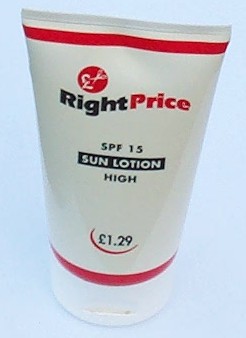
I dance the Macarena whenever I come across an article that argues against healthy living. I cautioned you against too much positive thinking a few days ago. I laughed while reading research about dark chocolate firing up the happy brain. And I high fived the doctors who warn folks against too much sunscreen–because it blocks the vitamin D that all of us need. I hate that stuff and was looking long and hard for an excuse not to look like a clown this summer. Thank you!
I’ve even performed the opposite of an intervention with one of my friends last week who was foolishly trying to give up alcohol and nicotine at the same time.
“No, no, no,” I told her. “You can’t do both of these together and expect to keep friends. Now I suggest you go pour yourself a glass of Merlot or light up the lung rocket pronto, and do us all a favor.”
Alas, I bring you one more doctor you will like: Dr. Erika Schwartz, Medical Director of Cinergy Health (www.cinergyhealth.com). She’s here to tell us not to get too carried away with our healthy habits. Thanks, Erika!
As a society, we are constantly striving to lead healthier, happier lives. But with these efforts, we sometimes run the risk of going too far. As a rule of thumb, any extreme is unhealthy, but rarely are we made aware of the “cons” of healthy habits, instead led to think any good thing is better if done as often as possible. Not so fast…
Here are some examples of healthy habits that can backfire when done in excess:
1. Over-Exercising: Your body and mind do not need more than 3-4 days a week of 30-45 minutes of cardio activity. Cardio/aerobic exercises should be done every other day alternating with Yoga, Pilates, walking, and weight training on the off days. Hiking, swimming, tennis, golf, team sports and a simple variation in exercise over the course of the week, month and season is the best way to stay lean, toned and energized.
2. Staying Out of the Sun: Our bodies need Vitamin D to stay strong by making healthy bones and ward off illness by boosting our immune system. The only way to get Vitamin D into our system is via sun exposure. Don’t make yourself overly neurotic about sunscreen. If you are going to the pool or beach or participating in outdoor sports that involve more than 20 minutes of sun exposure, slather on the SPF 30, but if you are simply doing your daily errands outdoors, enjoy the feeling the sun on your skin. The only part of your body that should always be protected is the face.
3. Antibacterial Soaps and Gels: Antibacterial soaps and gels are good to carry in your purse or car but becoming obsessed with the sanitization they promise could weaken your body’s ability to fight off “good bacteria.” Using them is okay, but use regular soap as well.
4. Sleeping: The average person needs 8 full hours of undisturbed sleep at night. If you are regularly getting fewer or more than nine hours sleep, you are not doing yourself much good. Human beings are not built to think, process or function optimally on more or less than 7 to 9 hours of sleep a night. Not to mention too little or too much sleep is bad for our skin and causes bloating, overeating, confusion and depression.
5. Air Conditioning: While air conditioning feels great on a hot, humid summer day, don’t sit and breathe in cold recycled air all day and night long. The air may contain bacteria and germs and certainly all kinds of particles of dust. Every few hours, turn the air off, open the windows, go for a walk outside and breathe in the fresh air — don’t forget to wash your air conditioning filters with warm water and soap and let them air-dry every month you’re using them. And if you work in an office building where windows never open, bring a sweater to keep your core temperature warm and get out of the office at least for lunch and a mid-afternoon break
6. Organic Food: While organic foods – such as fruits, vegetables and packaged goods – tend to be expensive, the real problem is that unless you eat them directly from the farm, they to can contain pesticides or be processed. Make sure to read the labels of the food you are purchasing carefully even if you are buying them from the health food store. Foods don’t need to be “organic” to be healthy. Stick with labels that have simple and few ingredients, and a low amount of natural sugars (like honey, turbinado sugar, cane sugar), sodium and processed carbohydrates.
To check out CinergyHealth.com, click here.
* Click here to subscribe to Beyond Blue! And click here to follow Therese on Twitter. And click here to join Group Beyond Blue, a depression support group. Now stop clicking.

